A fairy tale or a true possibility: traveling long distances by land and sea as a substitution for flying
Published 12 November 2024 by la rédaction
When sound and multimedia artist Johanna Sulalampi had to travel from Finland to Germany for a collaboration with Trio Abstrakt, she decided to do it by surface travel. With the support of the Projekt Atol and the Rewilding Cultures Mobility Conversation grant, she embarked on a eight-night trip. A realistic alternative to flying? In this text, she explores the opportunities of sustainable travel.
Text by Johanna Sulalampi
I, Johanna Sulalampi (she/they), started this story as an optimist. I wasn’t new to the idea of traveling by land, otherwise known as surface travel. Though in the past I traveled overseas by plane, I also did trips from Southern Finland to other parts of Europe by train, ferry, car, bus and hitchhiking. The most defiant experiment I have done was a bicycle trip from Helsinki to the Venice Art Biennale through the Prague Scenography Quadrennial in the summer 2019. These travels were related to vacations and studies, and my motivation was to decrease the impact on the environment.
On this project, my goal was to test surface travel over long distances in the context of working as an artist. My aim was to work on the ferry and train to and from Germany twice. The occasion was my collaboration with the Cologne-based ensemble Trio Abstrakt. The intention was to participate in the rehearsals and premiere of my new work and to deliver the ceramic percussion instruments I made for them for the piece. My area of expertise is sound-based practices, but this was my second ever composition (and the first composition that involved musical notation). That’s why it was essential for me to take part in the rehearsals on the spot.
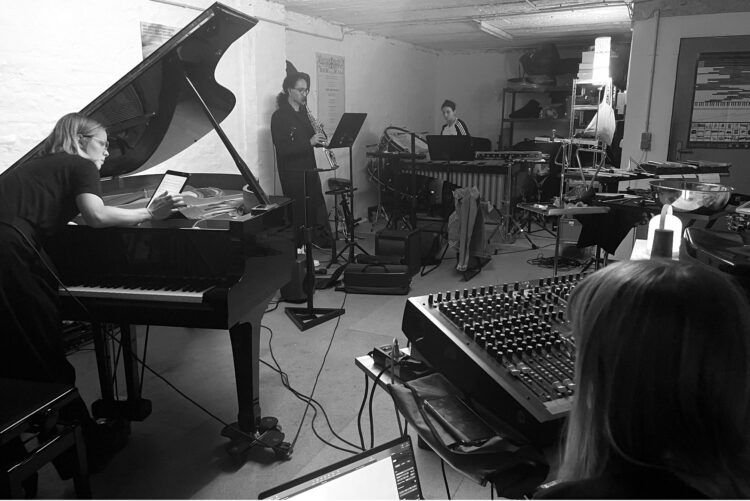
In arts, we certainly need to exchange ideas, values and make connections over the borders. But remote meetings and other internet platforms are simply not the same as meeting face-to-face. Sharing ideas, getting to know each other, and seeing and hearing the results of cooperations are significantly more rewarding in person than when working remotely. The necessity of traveling abroad and its ecological ramifications position artists in situations where difficult choices and justifications have to be made. The situations are often influenced by factors that are not within control. October 2024, the border between Finland and Russia has remained closed for 10 months. Even though the passage between the rest of Europe and Finland has for me never happened through Russia, the closing of the border has created a feeling of being trapped in. Southern Finland now feels more like an island than ever before.
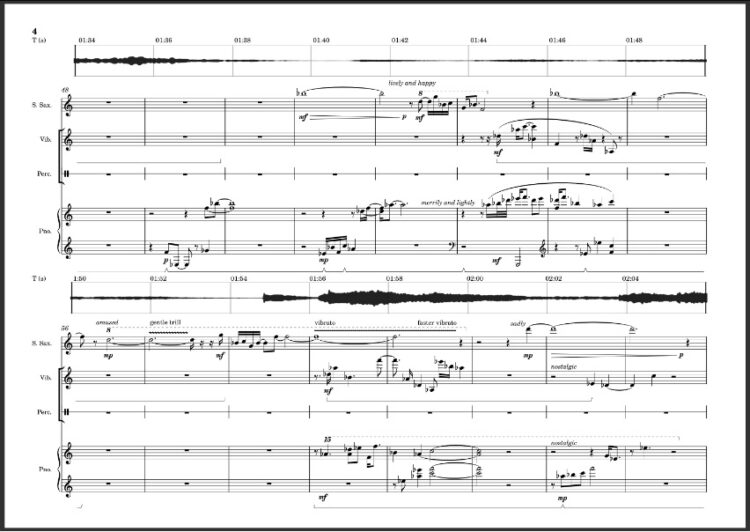
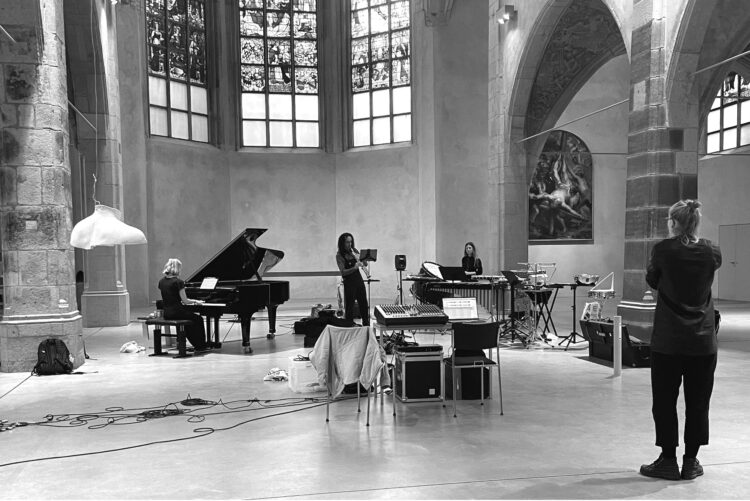
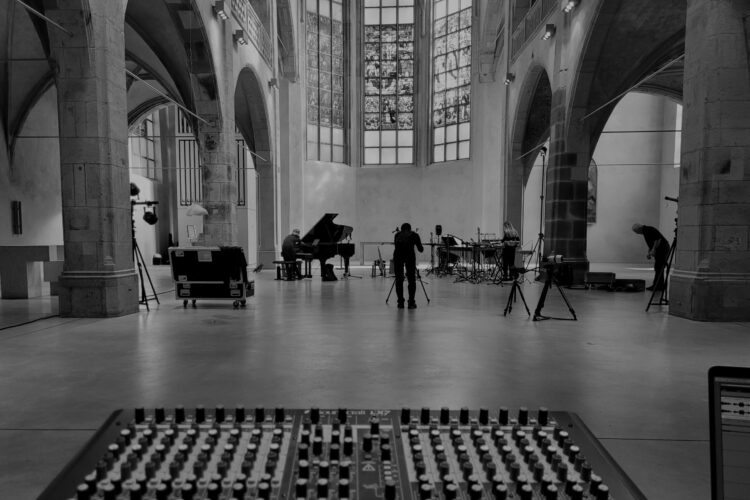
This situation has made me think about surface travel from another perspective as well. Clear, easy and accessible bus and railway networks would bring a sense of togetherness with the rest of Europe from the perspective of a Finn. But what does accessibility mean in this context? It doesn’t just mean the price, time consumption or the physical disability factors, it also means the psychological accessibility.
My travel route from Helsinki to Cologne took two nights. First a local bus and tram to the ferry terminal, then the overnight ferry to Stockholm. From Stockholm, I took the SJ Euro Night train to Hamburg. From Hamburg to Cologne, the Intercity train and the underground took me to the final destination. The amount of problem-solving, planning, waiting and communication situations this type of travel takes can take the best out of anyone. Doing this trip four times on top of a heavy workload drove me very close to exhaustion. I noticed that the quality of work done on a train and ferry suffers because the environment affects the cognitive performance. Traveling itself is kind of a work. Grant providers whom offer subsidies for ecological traveling should include daily allowances. This would make up some for the time lost, and the rest needed after this type of journey.
In the discussions I have had about the alternatives to air travel, it has become clear that the vast majority of Westerners know surface traveling is one of the self-evident things individuals can do to reduce their impact on the environment. Unfortunately, traveling has become as a sensitive topic as talking about one’s eating habits. Choosing the train is easy when the trip doesn’t include overnight travel, but making the decision between a three-hour flight and two days surface travel is heavier. Usually booking the flight and figuring out how to get to the airport takes a few hours. Smoothly planned surface routes are rarer, and the planning and reservations take easily many days. The responsibility of a succession of the trips lies with the traveler when the journey won’t go as planned.
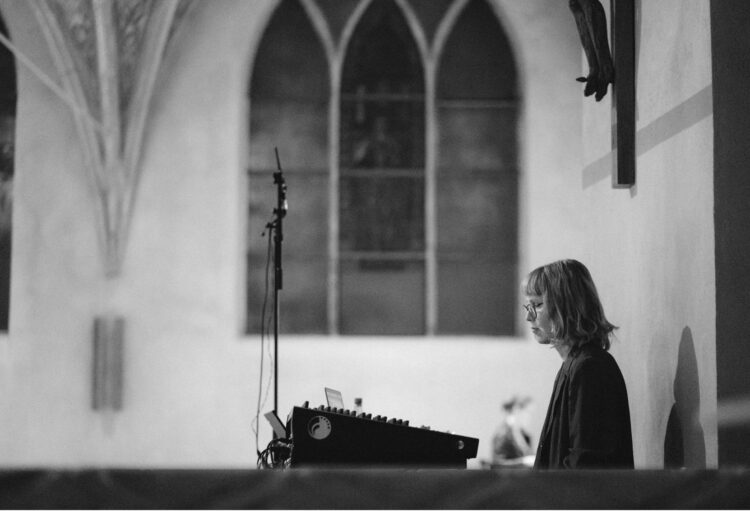
When added, that overnight surface journeys are still multiple times more expensive compared to flying and that the travel itself does not support the well-being of a person’s physiological and psychological essence, the whole discussion about surface traveling being an alternative to flying is kind of a fairy tale. A short narrative familiar to us all, passed on for the generations. It looks like, more than anything else, this narrative stands as a protective dissociative shield between the ‘used to travel generations’ and the embodiment of the causes of flying. Unfortunately, the continuation of an individual’s life in this system requires such stories. After the variable travels and conversations I have had, I believe that the emphasis should not be on how to push individuals to pursue more sustainable choices on travel, but on how to change the travel itself.
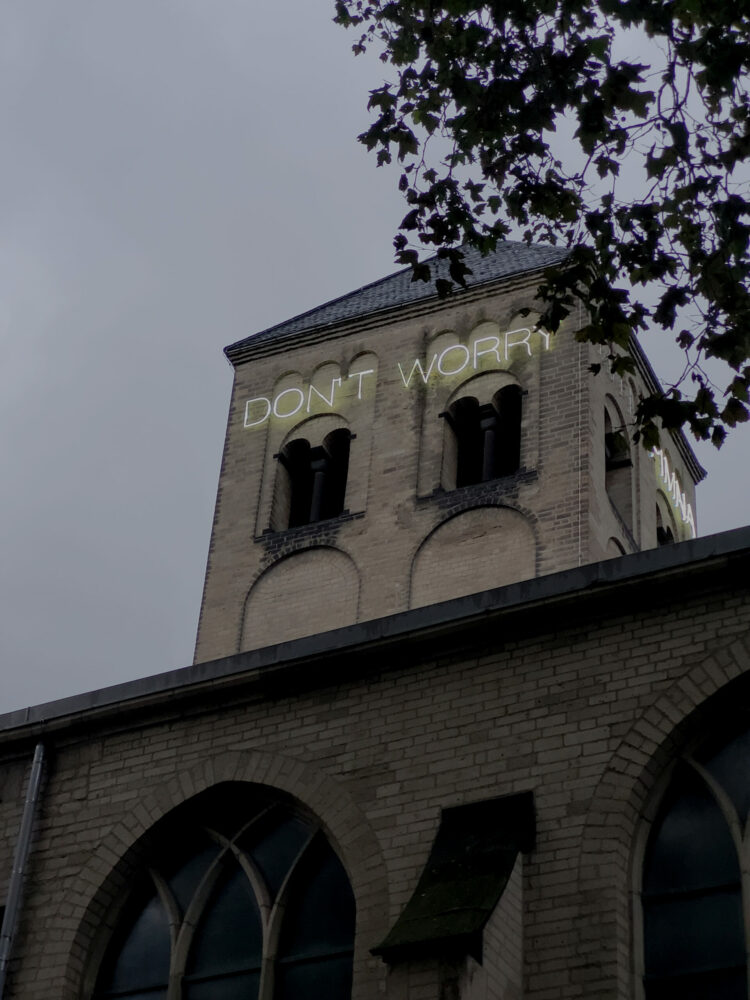
Capitalism points the finger at the consumer and minimizes democracy to consumption choices, claiming that consumption must change before services can change. This text is a finger pointing back. The services must change so it is realistically possible for the consumers to adapt. The pressure for low-emission travel and the accessibility of flightless travel should be placed on airlines, companies and states that support them, instead of individuals. When developing surface travel alternatives for flying, in addition to the price tags and ecological values, the experiential nature of travel should also be improved and developed. A long journey by land must maintain the individual’s mental and physical endurance so that the experience is comparable to traveling by air on the same journey. It should be noted that the reasons are manifold, and the potentials and needs of traveling by land are different compared to flying. Until those who have the true power for the change in the capitalistic system take responsibility for bringing about the change, surface travel over long distances as a substitution for flying will remain a fairy tale.
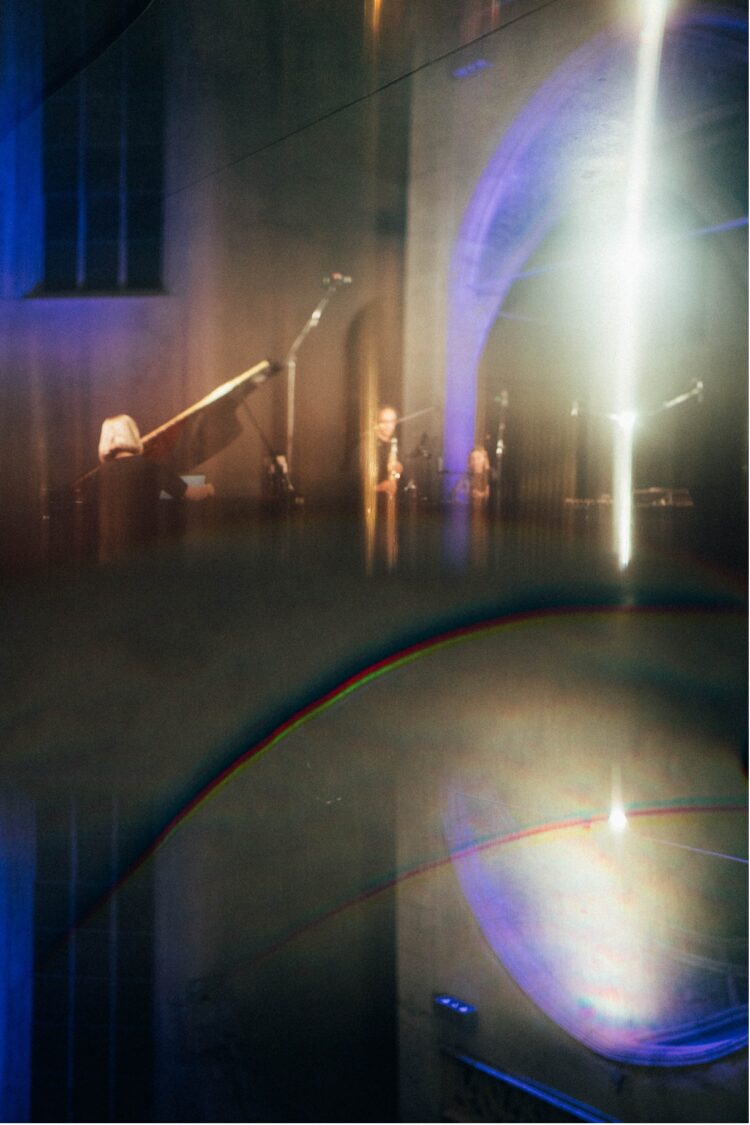
Despite the difficulty and exhaustion caused by the travels, the end result of the collaboration with Trio Abstrakt was a new piece of contemporary music for saxophone, piano, percussion, electronics and ceramic self-made instruments. It premiered in St. Peter’s Church at Cologne as a part of Trio Abstrakt’s Confluences concert. I named my new piece Solastalgia, the direct meaning of which is climate anxiety. For me, it more broadly refers to the emotionally unstable times of the climate crisis, when hope and loss are merged together in an inseparable way.
In connection with this text, I have added pictures of the peak moments of this fairy tale, instead of showing pictures of different railway stations, pigeons on the platforms looking for crumbs from traveler’s lunch, my takeaway coffee cups and sandwiches on the folding tables of the trains, cold fingers on the first autumn day while waiting for a late train at Hamburg station, a broken train cabin door that was closed with a shoelace, from tired eyes while changing a broken train to another at night in Denmark, from the beautiful view from train window, from the carpeted floors in the ferry corridors, the sea from the deck of the ship, from packing, unpacking and packing luggage over and over again. In the future, I will choose surface traveling again in the case when it is accessible, and I carefully consider when to travel by plane.
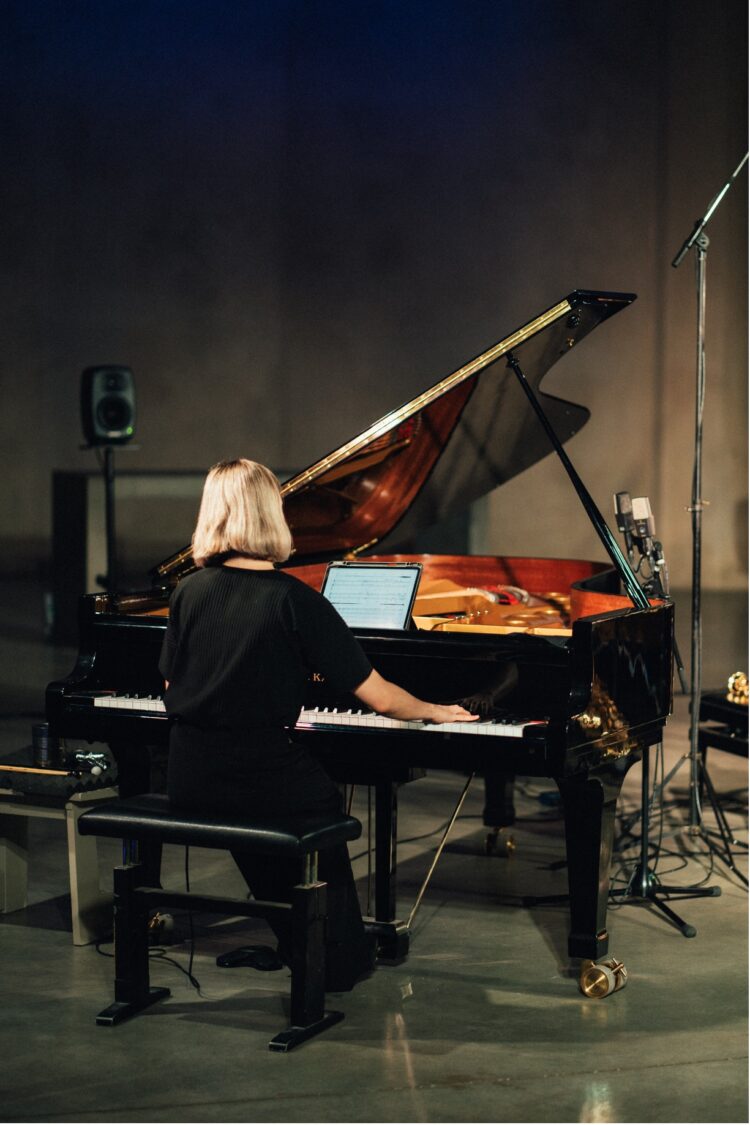
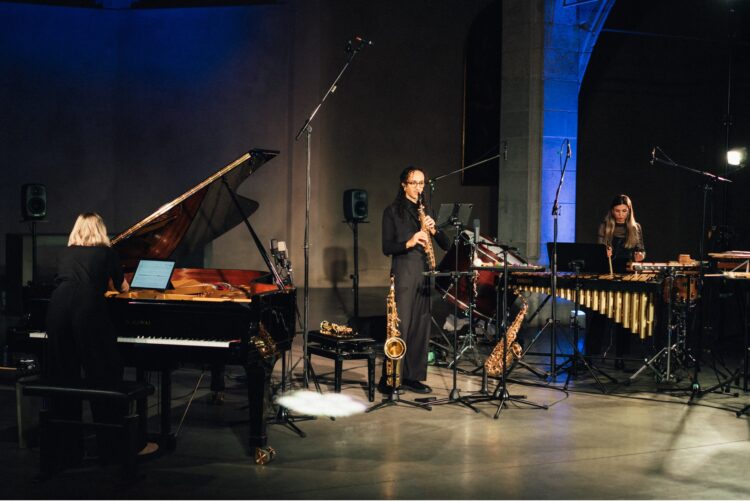
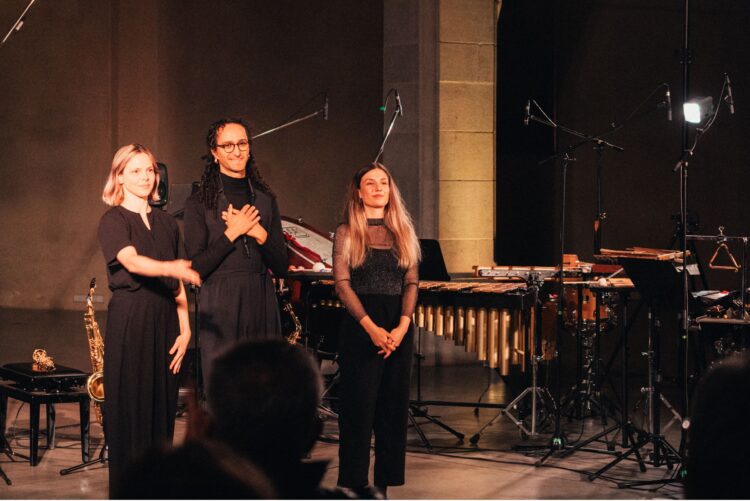
Johanna Sulalampi is the recipient of a mobility grant awarded as part of the Rewilding Cultures cooperation project co-financed by the European Union’s Creative Europe program.
